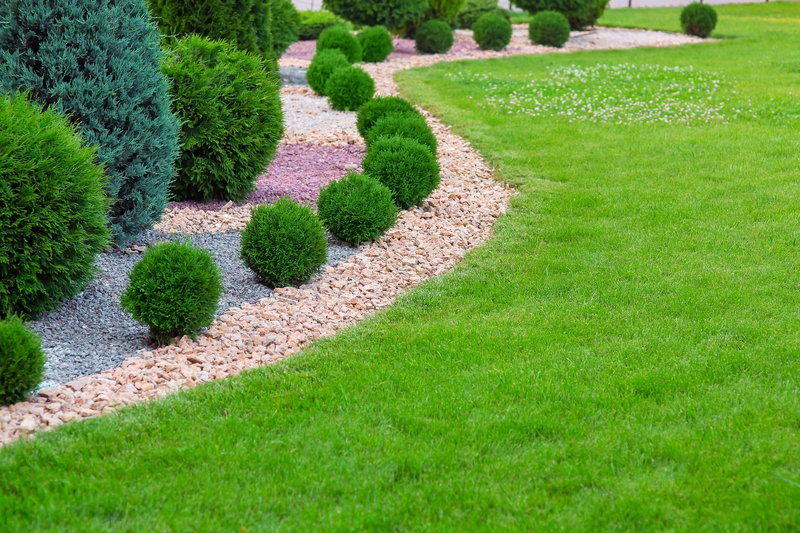A rock garden can add a touch of natural beauty and tranquillity to any landscape. With its rugged charm and minimalistic appeal, rock gardens are an excellent choice. Besides their aesthetic appeal, rock gardens are also known for their low-maintenance nature. However, like any other garden, a rock garden requires proper maintenance to thrive. In this blog post, we will explore essential rock garden maintenance tips that will help you keep your garden beautiful and hassle-free. From plant selection and soil preparation to watering techniques and weed control, we’ll cover all the key aspects to ensure your rock garden remains a stunning focal point of your landscape with ease. So, let’s dive in and discover the secrets to a beautiful and hassle-free rock garden!
How to Maintain Your Rock Garden
- Select the Right Plants: One of the fundamental aspects of maintaining a rock garden is selecting the right plants. Opt for plants that are well-suited to your local climate, soil type, and the specific conditions of your garden. Look for drought-tolerant species, as rock gardens tend to have excellent drainage and can experience dry conditions. Succulents, alpine plants, and native wildflowers are excellent choices for rock gardens, as they are adapted to harsh environments and require minimal care.
- Choose Suitable Rocks: The foundation of any rock garden lies in the selection of rocks. Choose a variety of rocks in different shapes, sizes, and colours to create visual interest. Larger rocks can serve as focal points, while smaller ones can be used to create texture and interest. Soil Kings is a trusted provider of high-quality landscaping materials, offering many garden rocks like washed, Alberta rainbow rock, limestone, river rocks and rundle rocks that can elevate the beauty of your outdoor space.
- Add Mulch: Mulching is a beneficial practice for rock gardens as it helps conserve moisture, suppresses weeds, and moderates soil temperature. Use a layer of Soil Kings’ organic mulch, such as Bowcrow mulch, around your plants. This will help retain moisture in the soil, reduce the need for frequent watering, and provide insulation during extreme temperatures.
- Water Wisely: Watering is a crucial aspect of rock garden maintenance. While rock gardens generally require less water compared to traditional gardens, it is important to ensure adequate moisture for your plants. Water deeply but infrequently to encourage deep root growth. This helps plants become more resilient to drought conditions. Consider installing a drip irrigation system or using a watering can with a fine nozzle to deliver water directly to the plant’s base, minimizing water waste.
- Implement Weed Control: Regular weeding is essential to maintain the pristine appearance of your rock garden. Remove weeds manually, being careful not to disturb the surrounding plants or rocks. Applying a layer of weed-suppressing fabric or using a pre-emergent herbicide can also help prevent weed growth. Soil Kings’ Cedar Mulch also has natural herbicide and antifungal properties which help control weeds and prevent mushrooms.
With proper care and maintenance, your rock garden can remain a breathtaking focal point in your landscape. By selecting suitable plants, choosing the right rocks, implementing proper watering techniques, mulching, and controlling weeds, you can ensure that your rock garden thrives while minimizing the time and effort required to keep it looking its best. Follow these rock garden maintenance tips, and you’ll enjoy the serenity and beauty of your low-maintenance rock garden for years to come.




